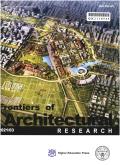居住设施对中国农村老年人抑郁和体弱的影响:中国健康与养老纵向研究的证据
IF 3.1
1区 艺术学
0 ARCHITECTURE
引用次数: 0
摘要
在乡村振兴和人口老龄化日益加剧的背景下,中国农村老年人的心理健康已成为社会广泛关注的问题。农村居住环境与农村老年人抑郁之间存在关联,但有关居住设施与农村老年人抑郁的研究却鲜为人知。本研究基于2014-2018年中国健康与退休纵向研究(CHARLS)的数据,探讨了农村老年人居住设施、体弱与抑郁之间的关系。结果显示,居住设施的数量可以通过对虚弱的部分中介作用来缓解农村老年人的抑郁水平。换句话说,居住设施越多,老年人的虚弱程度就越低,从而降低了抑郁的风险。家庭中缺乏洗浴设施、宽带和厕所会加剧农村老年人的虚弱和抑郁程度。重视改善生活环境和居住设施,降低虚弱程度,将有效减少农村老年人的抑郁问题,这对中国农村老年人的健康具有重要意义。本文章由计算机程序翻译,如有差异,请以英文原文为准。
The influence of residential facilities on depression and frailty of the elderly in rural China: Evidence from the China health and retirement longitudinal study
In the context of rural revitalization and the increasing prevalence of aging population, the mental health of older adults in rural China has become an issue of widespread social concern. There is an association between rural living environments and depression in rural older adults, but little is known about research on residential facilities and depression in rural older adults. Based on data from the 2014–2018 China Health and Retirement Longitudinal Study (CHARLS), this study explores the relationship between residential facilities, frailty and depression among rural older adults. The results show that the number of residential facilities can alleviate the level of depression among rural older adults through partial mediation of frailty. In other words, the more residential facilities there are, the less frail the older adults will be, thereby reducing the risk of depression. The lack of bathing facilities, broadband, and toilets within the household will exacerbate the level of frailty and depression among rural older adults. Paying attention to improving the living environment and residential facilities, reducing frailty, will effectively reduce the problem of depression among rural older adults, which has important implications for the health of rural older adults in China.
求助全文
通过发布文献求助,成功后即可免费获取论文全文。
去求助
来源期刊

Frontiers of Architectural Research
ARCHITECTURE-
CiteScore
6.20
自引率
2.90%
发文量
430
审稿时长
30 weeks
期刊介绍:
Frontiers of Architectural Research is an international journal that publishes original research papers, review articles, and case studies to promote rapid communication and exchange among scholars, architects, and engineers. This journal introduces and reviews significant and pioneering achievements in the field of architecture research. Subject areas include the primary branches of architecture, such as architectural design and theory, architectural science and technology, urban planning, landscaping architecture, existing building renovation, and architectural heritage conservation. The journal encourages studies based on a rigorous scientific approach and state-of-the-art technology. All published papers reflect original research works and basic theories, models, computing, and design in architecture. High-quality papers addressing the social aspects of architecture are also welcome. This journal is strictly peer-reviewed and accepts only original manuscripts submitted in English.
 求助内容:
求助内容: 应助结果提醒方式:
应助结果提醒方式:


